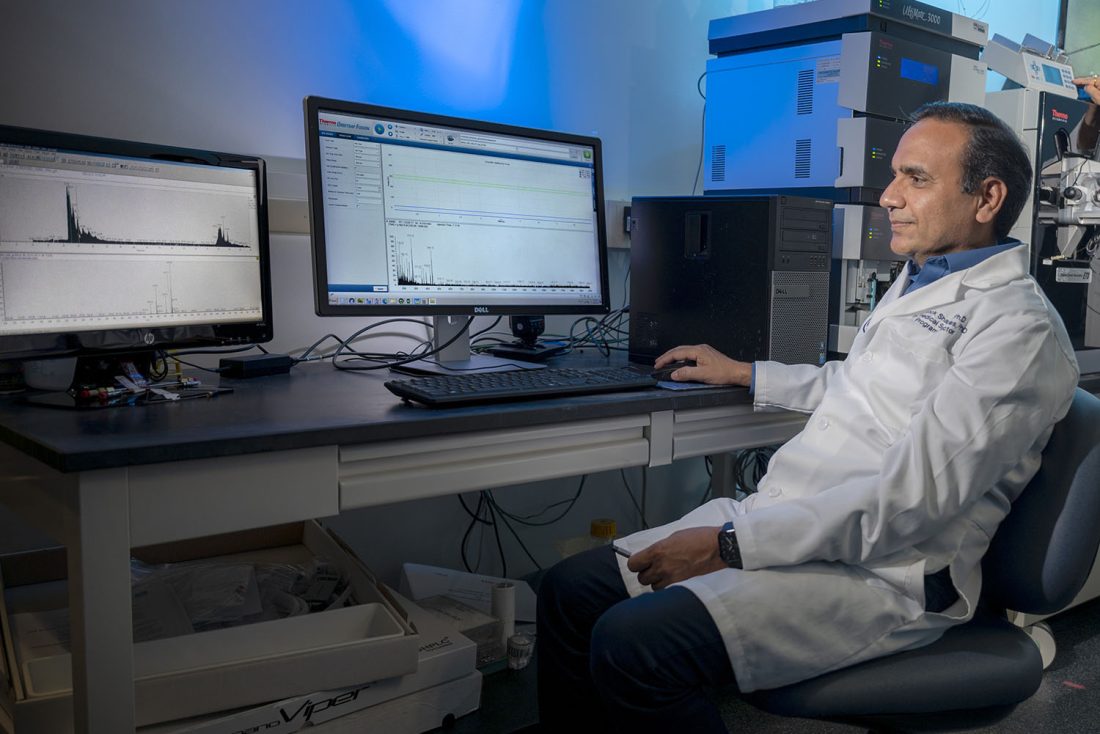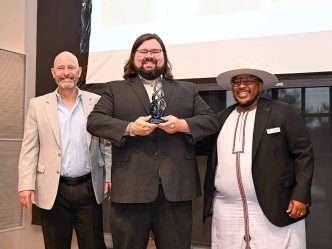Scientists at the Medical College of Georgia at Augusta University have established a database that will allow researchers to better examine the underlying causes of some of the most common conditions that cause vision loss.
After five years of dedication and persistence, Ashok Sharma, PhD, associate professor and director of the bioinformatics core in the MCG Center for Biotechnology and Genomic Medicine, and a team of fellow researchers from the center, the Department of Ophthalmology and the Culver Vision Discovery Institute have established the Aqueous Humor (AH) Proteome Database.
The AH is a low viscosity biofluid that continuously circulates and plays essential roles in supplying nutrients, removing waste and providing oxygen to the avascular tissues of the eye. The functions and interactions of its proteins, called the proteomic composition, are crucial to understanding cellular processes, including cell-to-cell communication, signal transduction, immunological modulation and cell proliferation. And changes in the proteomic composition of AH have been associated with conditions such as cataracts, glaucoma, age-related macular degeneration, retinoblastoma and diabetic retinopathy.
Advances in high-resolution mass spectrometry have helped scientists take a closer look at these proteins and their associations with ocular diseases, however more research is needed and access to that technology is still limited.
This new database will help eliminate that problem and includes data from 307 human AH samples, comprehensive information on 1,683 proteins identified in the AH, as well as relevant clinical data for each analyzed sample. The team’s work was recently published in Database, The Journal of Biological Databases and Curation.
“Characterizing the human AH proteome will further our understanding of the roles of specific molecules in health and enable more in-depth studies of their relation to pathogenesis,” Sharma says. “Providing a reference database is an important step in supplementing and guiding future investigations of ocular pathology and physiology.”
The database is publicly accessible and as additional samples are collected and analyzed, the proteomic and corresponding clinical data will be incorporated. The researcher team also plans to add functions that allow other users to upload their own AH proteomic data to the database.
Globally, at least 2.2 billion people have a near or distance vision impairment. In at least 1 billion of these cases, vision impairment could have been prevented or is yet to be addressed, according to the World Health Organization.
This work was funded by the National Institutes of Health.
 Augusta University
Augusta University




